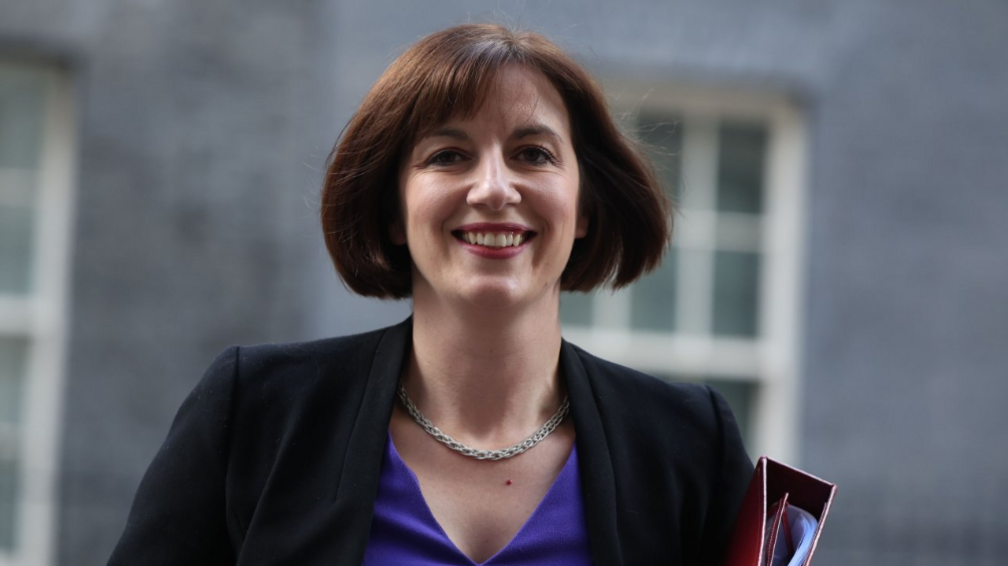Early skirmishes in Labour race highlight government headache

- Published
The ripple effects of the Angela Rayner saga roll on.
A cacophony of Labour voices now, via an official party process, are offering their views in public about whether the government is any good or not.
You don't need to be steeped in political strategy to grasp why some in and around Downing Street could really have done without this and want it all over as quickly as possible.
So far, we have seen a limited amount of the contenders: the Education Secretary Bridget Phillipson gave a speech to trades unionists at the TUC Congress in Brighton, in which she made no reference to the contest at all.
Who could replace Angela Rayner as Labour deputy leader?
- Published12 September
Phillipson is the frontrunner in race to replace Angela Rayner
- Published10 September
The left winger Bell Ribeiro-Addy has done some interviews with journalists and Alison McGovern has popped up on Newsnight.
Some of the others I have spoken to will be out and about before long, but are focused for now on touring the tearooms and attempting to fill their spreadsheets with the names of supporters.
Time is tight and the bar is high – cobbling together 80 people willing to back you in a handful of days isn't easy.
Already, though, we have had an insight into how awkward this race could prove for the government, depending on who makes it through the early stages.
Take Emily Thornberry. She served in Sir Keir Starmer's shadow cabinet before the general election and expected to be offered a cabinet job in his government after Labour had won.
No such offer came.
Now she is running to be deputy leader of the party. It is a story line with a certain soap opera appeal.
And already Thornberry has been punchily critical of the government, in just one post on social media.
"We've made mistakes and must listen. Welfare. Gaza. Wealth tax," she wrote, adding, archly that she wouldn't "just nod along," a line seemingly aimed at Phillipson and Alison McGovern, the other candidate who is also a government minister.
Imagine Labour's deputy leader, were Thornberry to win, spending the autumn talking up a wealth tax, in the weeks before the Budget in November.
But let's not get ahead of ourselves.
Firstly, she has a lot of MPs to find to back her.
Attempting to do that, and in just a few days, led Ribeiro-Addy to publicly complain about the process being anti democratic.
She has also criticised the government for not scrapping the two-child benefit cap, she wants a full arms embargo and sanctions to be imposed on Israel, and the ban on Palestine Action to be removed.
Of course, hers is a campaign that may only last a few days. Let's see.
So, how many of the candidates are serious contenders here, and who are they?
Bridget Phillipson is well on the way to 80 MPs backing her already, with 44.
Lucy Powell isn't far behind with 35.
The others are all in single figures.
But hundreds of Labour MPs are yet to endorse anyone.
The key question now is which candidates clear this first hurdle, and how many of them are not in government and so more free to criticise it as the race heads to its next stage?
This is likely to be a key factor in shaping the tenor and tone of the debate that follows – and the eventual winner.

Sign up for our Politics Essential newsletter to keep up with the inner workings of Westminster and beyond.